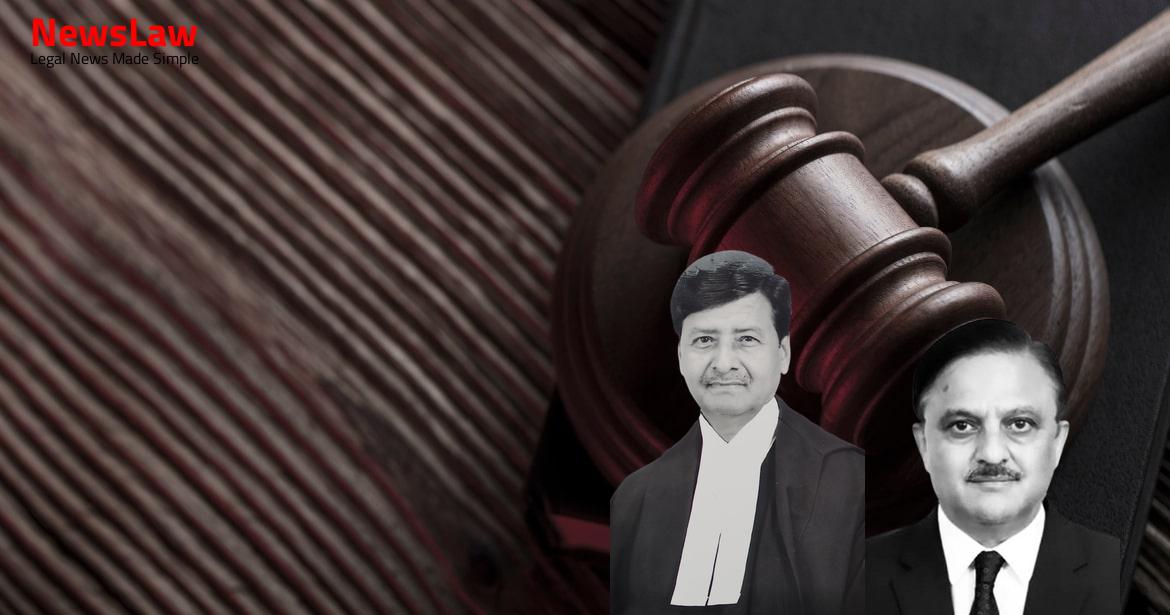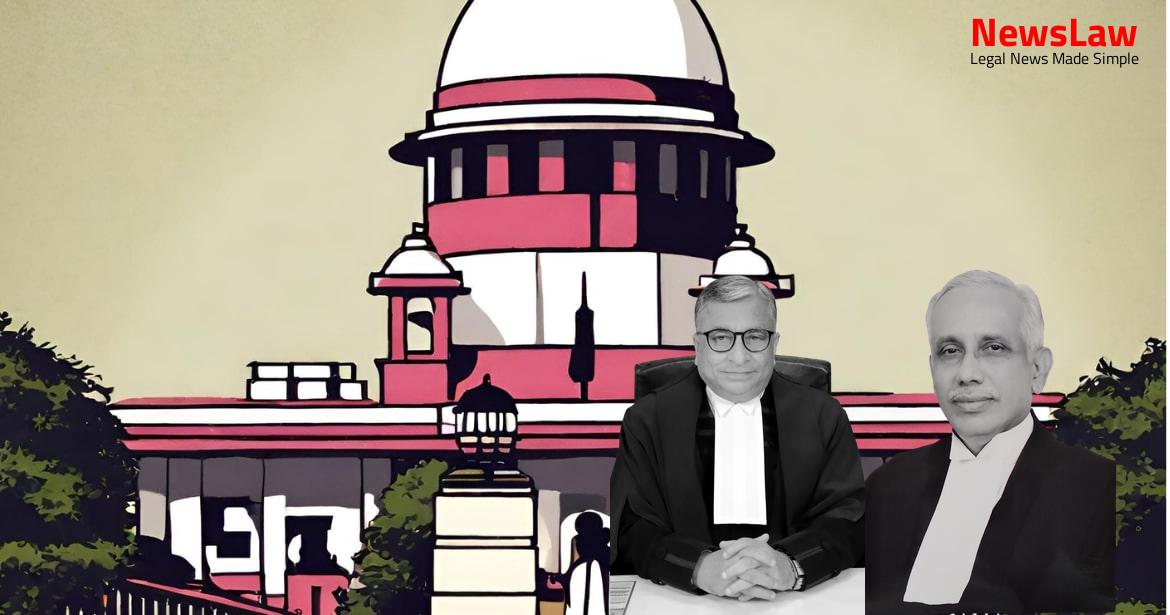In a recent legal case concerning food adulteration, the court delved into the crucial aspect of compliance with mandatory reporting requirements. The court’s detailed legal analysis underscored the significance of adhering to prescribed procedures and ensuring due process. This summary highlights the key points raised by the court’s examination of the case.
Facts
- The appellant has been convicted for the offence under Section (16)(1)(a)(i)(ii) of the Prevention of Food Adulteration Act, 1954.
- The quantity of chana daal was divided into three parts and sent for examination to the Public Analyst.
- The appellant was alleged to have violated clauses (i) and (v) of Section 7 of the said Act of 1954.
- The appellant failed to show any license during the inspection.
- The case of the prosecution states that the appellant was selling chana daal in Kagpur market without a license when the Food Inspector intervened and purchased 750 gms of chana daal for examination.
- Appellant convicted to undergo rigorous imprisonment for six months and pay a fine of Rs.1000/-
- In default of fine payment, directed to undergo rigorous imprisonment for one month
- Revision Application before High Court dismissed on 3 May 2018
- Judgment and Order of conviction rendered by Judicial Magistrate First Class on 12 October 2007
Also Read: Recovery of Misappropriated Temple Funds: Court’s Legal Analysis
Arguments
- The learned counsel for the appellant argued that the copy of the report of the Public Analyst was not provided to the appellant as required by Section 13(2) of the Prevention of Food Adulteration Act, 1954.
- This failure to provide the report has deprived the appellant of the opportunity to have the samples analyzed by the Central Food Laboratory.
- The counsel contended that this non-compliance with the mandatory provision of Section 13(2) has tainted the prosecution case and renders it vitiated.
- He cited a decision of the Supreme Court in Vijendra v. State of Uttar Pradesh to support his arguments against the validity of the prosecution.
- Presumption of service of the report rightly drawn by the High Court
- Prosecution adopted one of the two permissible modes of sending the report to the appellant-accused
- Endorsements on the postal packet showed multiple unsuccessful attempts by the Postman to serve the report to the appellant
- No interference necessary based on the above points
Also Read: Legal Analysis in Assault and Homicide Case
Analysis
- The accused has the right to challenge the report of the Public Analyst by sending the sample to the Central Food Laboratory for analysis.
- If the accused does not receive a copy of the report from the Public Analyst, their right to send the sample to the Central Food Laboratory will be defeated.
- More than one mode for serving the report of the Public Analyst on the accused was prescribed by Rule 9B.
- In this case, there was no attempt to personally serve the report on the appellant after the postal packet was returned.
- The report is required to be forwarded after the institution of prosecution against the person from whom the sample of the food article was taken.
- The High Court’s finding of refusal by the appellant to accept the report based on Postman’s endorsements on the postal envelope was deemed erroneous as the Postman was not examined to prove them.
- Section 13 of the said Act of 1954 mandates the Public Analyst to deliver a report to the Local (Health) Authority regarding the analysis of any food sample.
- Upon receiving a report indicating adulteration, the Local (Health) Authority must initiate prosecution against the relevant individuals and forward a copy of the report to them.
- The individuals receiving the report must be informed that they have the right to request the Court to analyze the sample kept by the Local (Health) Authority within ten days of receiving the report.
- Mere dispatch of the report to the accused is not sufficient, it must be served on the accused.
- The clerk who dispatched the report was examined, but the Postman who allegedly made remarks on the postal envelope was not examined.
- Rule 9B of the Rules specifies the procedure for the Local (Health) Authority to send reports to the person concerned after the institution of prosecution.
- Evidence presented by the prosecution was limited to dispatching the report.
- The High Court overlooked the mandatory requirement in sub-section (2) of Section 13, which involved serving a copy of the report to the accused.
- As this mandatory requirement was not fulfilled, there was non-compliance with sub-section (2) of Section 13.
Also Read: Legal Analysis in Disciplinary Action Case
Decision
- Appeal allowed
- Impugned Judgment and Order of the High Court dated 3 May 2018 in CRR No 303/2008 set aside
- Conviction of the appellant set aside by allowing the Revision Petition
- Conviction and sentence of the appellant cannot be sustained
Case Title: NARAYANA PRASAD SAHU Vs. THE STATE OF MADHYA PRADESH (2021 INSC 696)
Case Number: Crl.A. No.-001312-001312 / 2021



